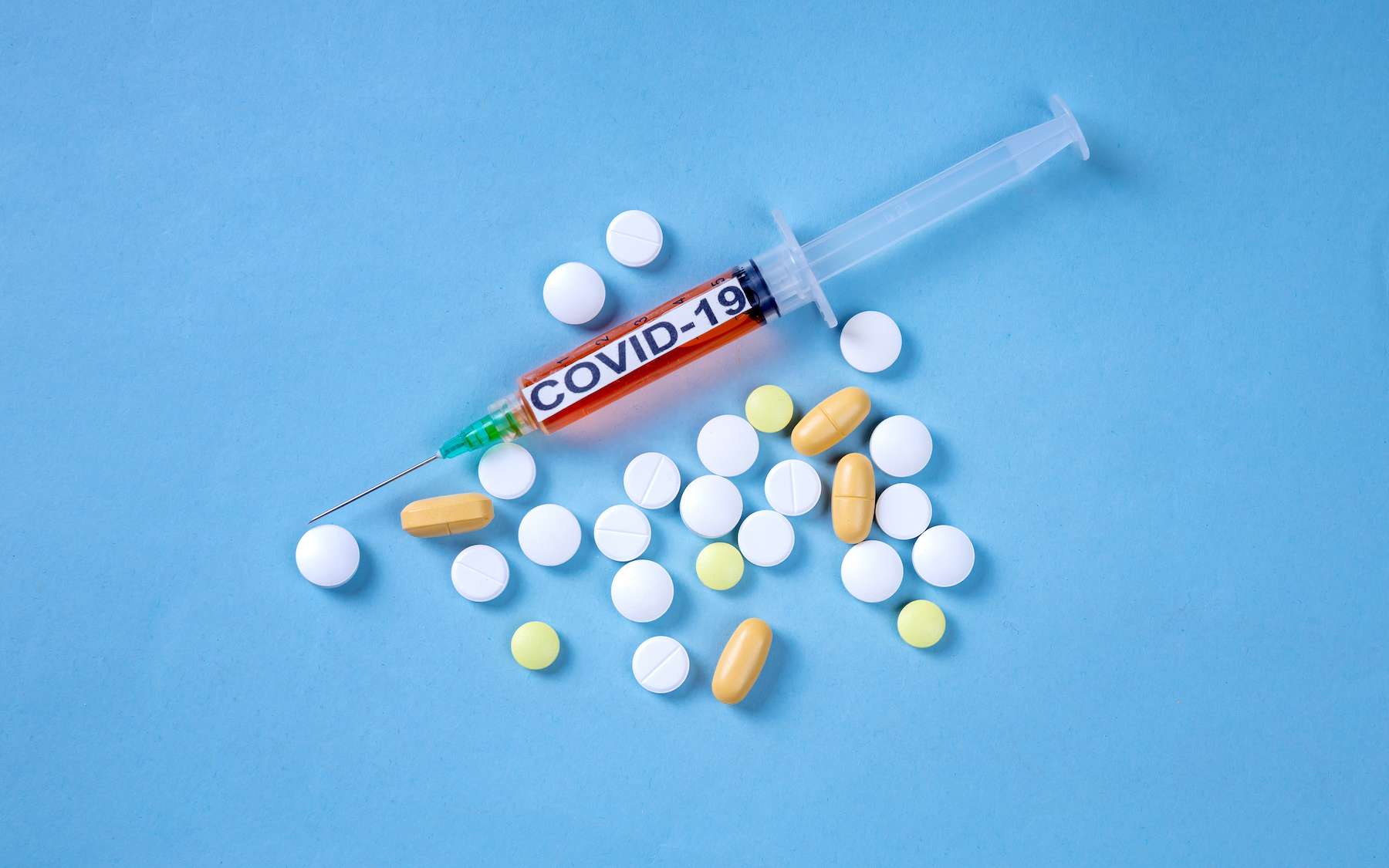The researchers combed through all of the literature on treatments for Covid-19 patients. Here are the most used classes of drugs and substances, with antivirals in mind. Despite an apparent unanimity on their choice, most of these treatments are in fact administered outside of any scientific framework.
The emergence of the SARS-CoV-2 coronavirus in December 2019 left many doctors in the dark. Faced with this unknown virus , they often had to fend for themselves with the means available to treat their patients, even if it meant testing unauthorized drugs and treatments. A meta-study, conducted by the University of Pennsylvania (United States) and published in the journal Infectious Diseases and Therapy , enumerated all the treatments administered to the first patients with Covid-19 . They calculated that 115 different drugs and remedies had been prescribed for these 9,152 patients.
One hundred and fifteen different drugs prescribed for Covid-19
To do this, the team combed through 2,706 articles published on the scientific pre-publication sites PubMed, BioRxiv, MedRxiv and ChinaXiv with the keywords “Covid-19″, ” SARS-CoV-2 ” or “2019-nCoV “between the 1 st December 2019 and 27 March 2020 . They extracted 155 from them that met serious selection criteria and evoked the results of clinical studies with drugs . Almost all of the cases mentioned have been hospitalized and, as regards the beginning of the epidemic , they are mainly Chinese. But the study highlights the trial and error of medical teams to find the right remedy.
Lopinavir / Ritonavir: the most commonly used treatment
The antivirals are the type most used treatment: 71.5% of patients received, led by the flagship combination Lopinavir / ritonavir administered to 21.9% of patients. Next come antibiotics (46.6%) and then corticosteroids (26.1%), such as methylprednisolone. More surprisingly, 7.6% of patients were treated exclusively or in combination with traditional medicine products such as herbal decoctions. Remedies officially recommended by the Chinese health authorities even in the absence of scientific evidence. The interferons alpha and beta , the protein family of cytokines with antiviral properties, were administered to 19.3% of patients and 11.5% were treated with immunoglobulins ( antibodies ).
Prescriptions outside the usual care protocols and without proven efficacy
” The vast majority of these treatments have been administered outside of any trial and on an experimental basis ,” the study reports. Only a minority of articles have been published with exploitable data on their effectiveness. And it is precisely this state of emergency that certain practitioners, like Didier Raoult , evoke to justify the administration of hydroxychloroquine outside a legal framework. In April, the College of Physicians had to call to order some general about ” the protocols illegal search and prescriptions outside Authorization to market ( AMM )” Some of them had indeed boasted of having discovered the miracle remedy based on antihistamines or azithromycin (an antibiotic). But it is clear that the practice is also common in the hospital.
Do doctors play sorcerer’s apprentices or are they just concerned with finding the best treatment for their patient? Not sure that the results of the 1,783 clinical trials underway on the Covid-19 provide convincing answers. Faced with contradictory and sometimes dubious results , confronted with a list of symptoms which evolves from day to day, medicine risks to grope a little more.
